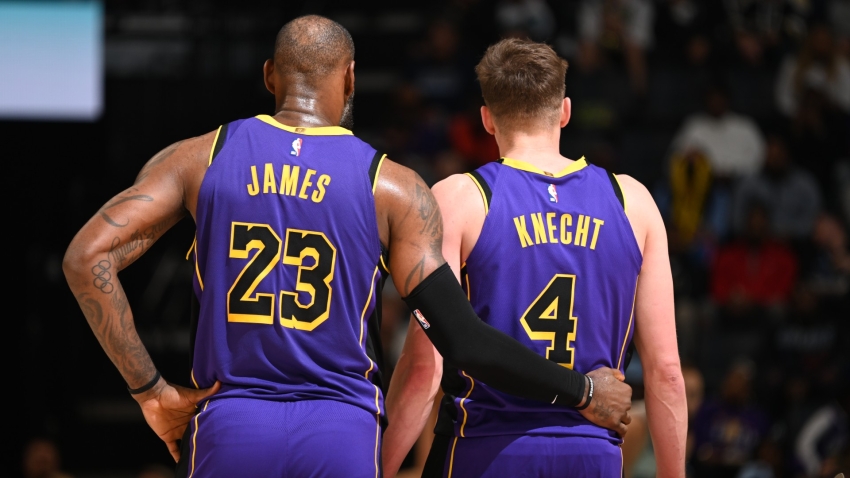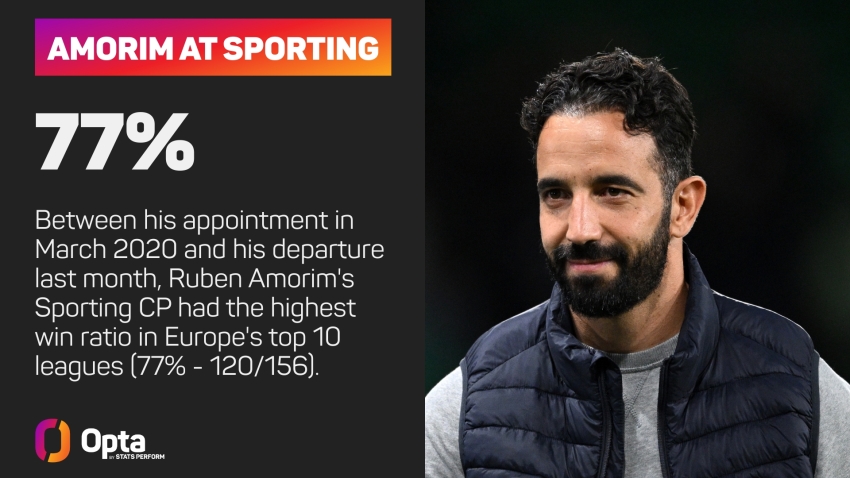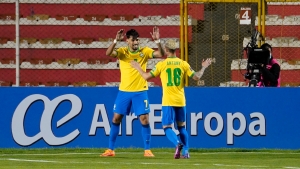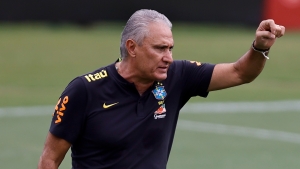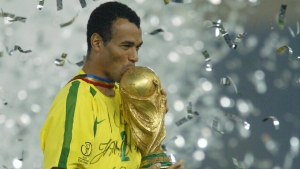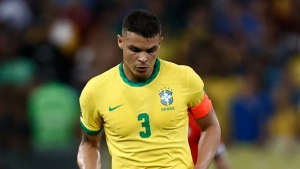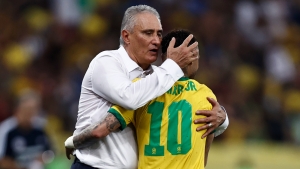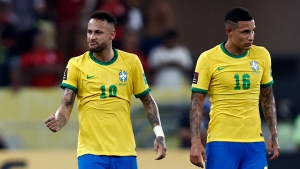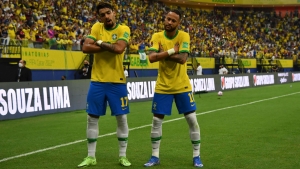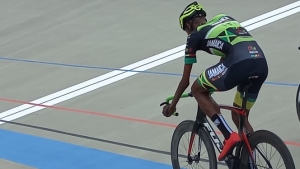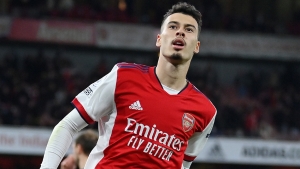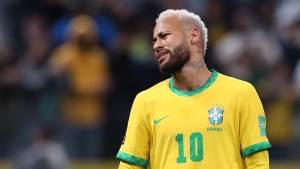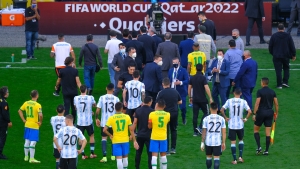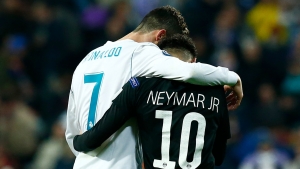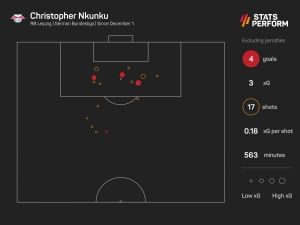Perhaps there is something special to February 5. Or at least there is when it comes to world-class footballers.
On this day in 1985, Cristiano Ronaldo was born on the island of Madeira. Seven years later, Neymar came into the world in Mogi das Cruzes, in the Brazilian state of Sao Paulo.
Two of modern football's greats being born on the same day is quite the quirk, but while Ronaldo has gone on to cement himself as one of the best ever, it's hard to shake the feeling Neymar has never quite lived up to his extraordinary potential.
He emerged at Santos as Brazil's golden boy, a bona fide superstar in the making. By the time he left for Barcelona in 2013 at the age of 21, he was already been talked up as a shoo-in for a Ballon d'Or success.
Yet, as the forward hits 30, no Ballon d'Or has arrived. Indeed, he finished 16th in the voting for the 2021 award, and his move to Paris Saint-Germain has not seen him scale new individual heights.
Instead, he has been somewhat overshadowed by Kylian Mbappe, one of the new kids on the block, and it was his team-mate and close friend Lionel Messi who claimed a record-extending seventh Ballon d'Or last year.
Ronaldo, meanwhile, turns 37 back at the club where he became a global star.
Manchester United may not be the force they were under Alex Ferguson in Ronaldo's first stint, but his shock return to Old Trafford was a sensational story, and he continues to provide match-winning moments even if the comeback hasn't quite transformed the Red Devils into title contenders.
Using Opta data, Stats Perform looks back at what Neymar has achieved so far in his career, and how that stacks up against Ronaldo's feats by the time his twenties were over.
The trophies
Ronaldo was at Real Madrid when he turned 30 in 2015, a year after collecting his third Ballon d'Or, and a year prior to receiving his fourth. He went on to claim what was at the time a record-equalling fifth in 2017.
By the time he hit 30, Ronaldo had won four league titles (three Premier League wins, one in LaLiga), five domestic cup trophies and had enjoyed two Champions League triumphs. He had two Club World Cup successes to his name, and the UEFA Super Cup.
He played a pivotal role in Ferguson's dominant United team of the 2000s, combining with the likes of Wayne Rooney and Carlos Tevez in a thrilling attack to win three successive Premier League titles between 2007 and 2009, before his departure to Madrid in a then world-record transfer. His maiden Champions League success came in 2007-08, and he left United after losing to Barcelona in the 2009 final.
Indeed, Barca were the dominant force upon Ronaldo's arrival at the Santiago Bernabeu, and for much of the time before he turned 30.
In total, Ronaldo had won 16 major trophies by the time his twenties ended. Neymar, on the other hand, had already won six titles by the time he left Santos.
He added a further two league crowns to his name in Spain and won the Copa del Rey on three occasions, as well as the Champions League, Club World Cup and the Supercopa de Espana once each.
The Champions League has evaded Neymar so far at PSG, though he nevertheless has a trophy count of 10 and counting from his time in France, while unlike Ronaldo, he can count an Olympic gold – earned in Rio de Janeiro in 2016 – among his honours.
Neymar has won 28 titles, with 21 of those coming in Europe and one with the Selecao (Confederations Cup 2013). However, Neymar missed Brazil's triumphant 2019 Copa America campaign through injury.
The rivalries
Ronaldo was 28 when Barca signed Neymar for €86.2m. The days of the Guardiola-Jose Mourinho Clasico rivalry were over, though the clash was still littered with superstars on each side.
Prior to his 30th birthday, Ronaldo featured in 22 Clasico matches, starting 21 times. He scored 14 goals and provided one assist across 1,928 minutes of action.
Neymar played against Ronaldo's Madrid in four of these games, scoring twice, including on his Clasico debut when he opened the scoring and teed up Alexis Sanchez's sublime winner in a 2-1 Barca victory.
Barca won two of the four Clasico games in which Neymar played while Ronaldo was in his 20s, with Madrid taking the bragging rights in the other games.
Neymar's overall Clasico record stands at three goals and as many assists from eight appearances.
The goals
Neymar has scored 195 goals in European club football since arriving at Barca in 2013.
It is hardly a total to be scoffed at, yet it pales in comparison to the 411 Ronaldo had managed across his spells with Sporting CP, United and Madrid by his 30th birthday.
Indeed, by February 5, 2015, Ronaldo had already netted 36 goals in all competitions in 2014-15. He finished that campaign with an incredible 61 goals, the highest single-season total of his career.
That 61-goal haul came towards the tail-end of a run in which Ronaldo netted at least 50 times in six straight seasons. Neymar's best tally in a single campaign stands at 39 (2014-15), while his totals at PSG have dropped year-on-year, with his total for 2021-22 standing at three in all competitions, compared to Ronaldo's 14.
Ronaldo is also now of course the outright leading goalscorer in the history of international football, having overtaken Iran great Ali Daei.
The Portugal captain has netted 115 times for his country, with 52 of those coming in his twenties.
Interestingly, Neymar wins out by 18 goals in this regard, totalling 70 across 11 years of playing for Brazil.
He still has some way to go to catch Ronaldo, who is of course still going strong for Portugal, though that is one target that may well be in Neymar's sights should he match Ronaldo's longevity.
That being said, Neymar's injury record would suggest that, unlike Ronaldo and Messi, his chances of going down as one of the all-time greats appear slim heading into his thirties.





